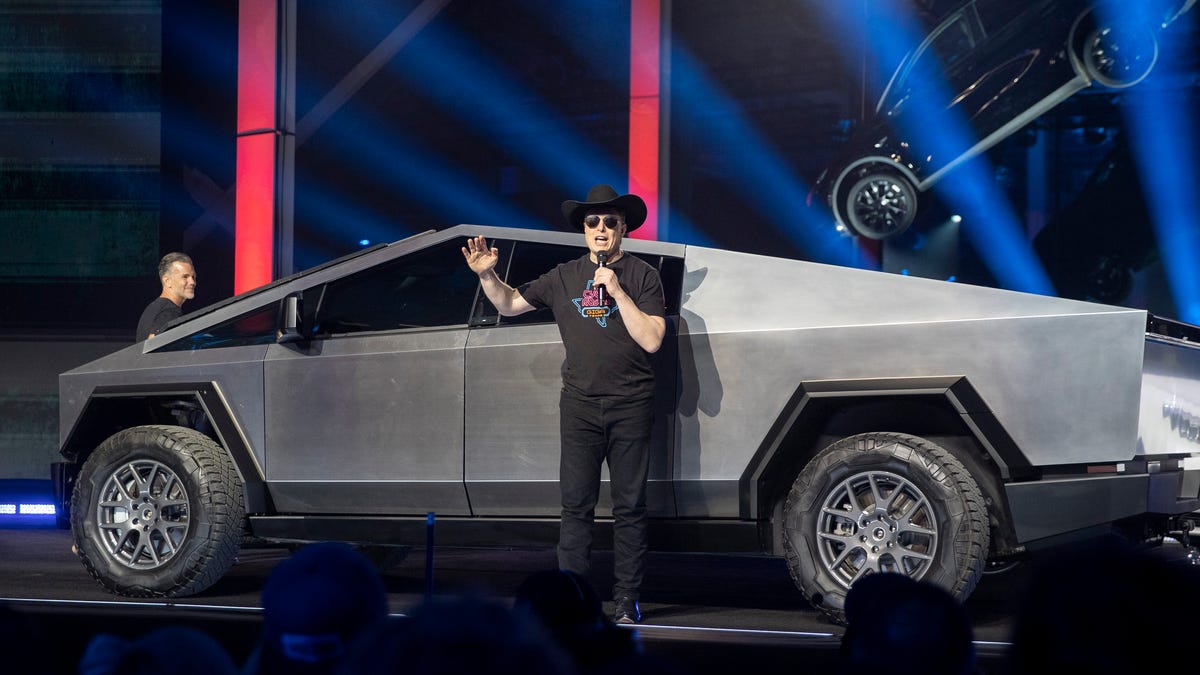
In a move that could be a test case for a similar legal fight in Texas, Austin-based automaker Tesla has filed a federal lawsuit challenging a Louisiana law that prevents it from selling its electric vehicles directly to customers.
The lawsuit, which was filed in U.S. District Court in Louisiana, is the latest attempt by the automaker to expand its ability to sell cars in states that have rules against direct-to-consumer sales. The suit names the Louisiana Automobile Dealers Association, several officials on the Louisiana Motor Vehicle Commission and some Louisiana auto dealerships, and it claims that the defendants conspired to create the current laws and regulations.
Unlike most automakers, Tesla sells its vehicles directly to customers. But a number of states, including Texas, ban this type of sale, instead requiring auto dealers to serve as a middleman in the process. Tesla currently operates “galleries” in Texas where customers can view and learn about Tesla vehicles but can't order them or discuss prices. Customers still have to go online to make a purchase.
More:Affordability still a roadblock to buying an electric car? Here's why it's getting better
Tesla, which moved its corporate headquarters to Austin last year, has previously pushed for changes to the Texas law. The issue has been brought up in the Texas Legislature during the past two sessions, but no bills have been passed.
Dan Ives, an analyst with Wedbush Securities, said if Tesla's legal challenge in Louisiana is successful, a similar approach probably would be tried in Texas.
“The direct-to-consumer model is a core part of the DNA of Tesla’s model, and after Louisiana we would expect Texas could be next,” Ives said. “Tesla has a unique brand and business model which differentiates it from traditional competitors, and this lawsuit hits on the direct model.”
In the suit, Tesla alleges that the defendants took a "two-pronged approach" to keep Tesla’s products from Louisiana customers. The company said a state law that went into effect in 2017 strengthened franchise laws and banned direct-to-consumer sales of vehicles, and Tesla customers who live in Louisiana have been going out of state to buy Tesla vehicles. The automaker also said the defendants have prevented Tesla from leasing cars and operating warranty repair shops to service the 3,000 Tesla vehicles registered in Louisiana.
"Although consumers have embraced Tesla — indeed, because consumers have embraced Tesla — Tesla’s competitors have pursued every avenue to bar Tesla from the market. Groups of industry incumbents, including some dealer associations across the country, have viewed Tesla as a threat to their local monopoly power over automobile distribution. Rather than try to compete with Tesla, some of these well-connected dealers have tried to block Tesla from local markets altogether by promoting protectionist legislation and by coopting state regulatoryauthority," Tesla alleged in the suit. "Unfortunately, in the state of Louisiana, many of Tesla’s competitors haveundertaken these same anti-consumer, anti-competitive activities."
In the lawsuit, Tesla alleges that Louisiana's ban on direct sales interferes with interstate commerce and violates the U.S. Constitution as it "irrationally singles out Tesla."
In 2016, Tesla filed a similar lawsuit in Michigan when the state denied the company a license to open a store to sell directly to consumers. The company and state settled the suit, and Michigan now allows Tesla to sell directly to consumers.
More:Austin-based Tesla appears set to break into Texas retail electricity market
What the law says in Texas
In Texas, state law prevents automakers from owning auto dealerships. The Texas Automobile Dealers Association and other supporters of the law say it safeguards consumers and prevents manufactures from establishing monopolies. Critics say the law establishes auto dealerships as unneeded third-party intermediaries.
Tesla has increasingly moved its operations into Texas in the past few years, particularly in the Austin area, where its corporate headquarters are now located and where the company has a $1.1 billion manufacturing facility. The Austin factory has started producing vehicles — but under current state law, that facility has to ship any vehicles it builds in Texas across state lines before bringing them back to Texas customers for delivery, to avoid counting as in-state sales.
Tesla CEO Elon Musk has expressed his desire to see the law change in Texas, posting in May 2021 on Twitter that "Tesla sure would appreciate changing the law, so that this is not required!"
Ives said the relocation of Tesla’s headquarters to Austin could add to the likelihood that such a law would pass, along with the thousands of jobs the company is expected to create in Texas in the coming years.
Musk has said previously, that the Austin-area operation is expected to hire more than 10,000 people through the end of this year in the manufacturing facility alone.
Production is continuing to ramp up at the Central Texas facility, which has started producing the company's Model Y SUVs and is developing capacity for other vehicles, including the Cybertruck, Model 3 and Semi, as well as vehicle batteries.
In July, Musk said the Austin-area facility is on pace to produce more than 1,000 vehicles per week in the coming months. Musk has said the goal is for the facility to build as many as half a million vehicles in Austin next year, which would make it among the highest-volume auto factories in the country.
Bagikan Berita Ini














0 Response to "Tesla sues to sell directly to consumers in Louisiana; could Texas be next? - Austin American-Statesman"
Post a Comment